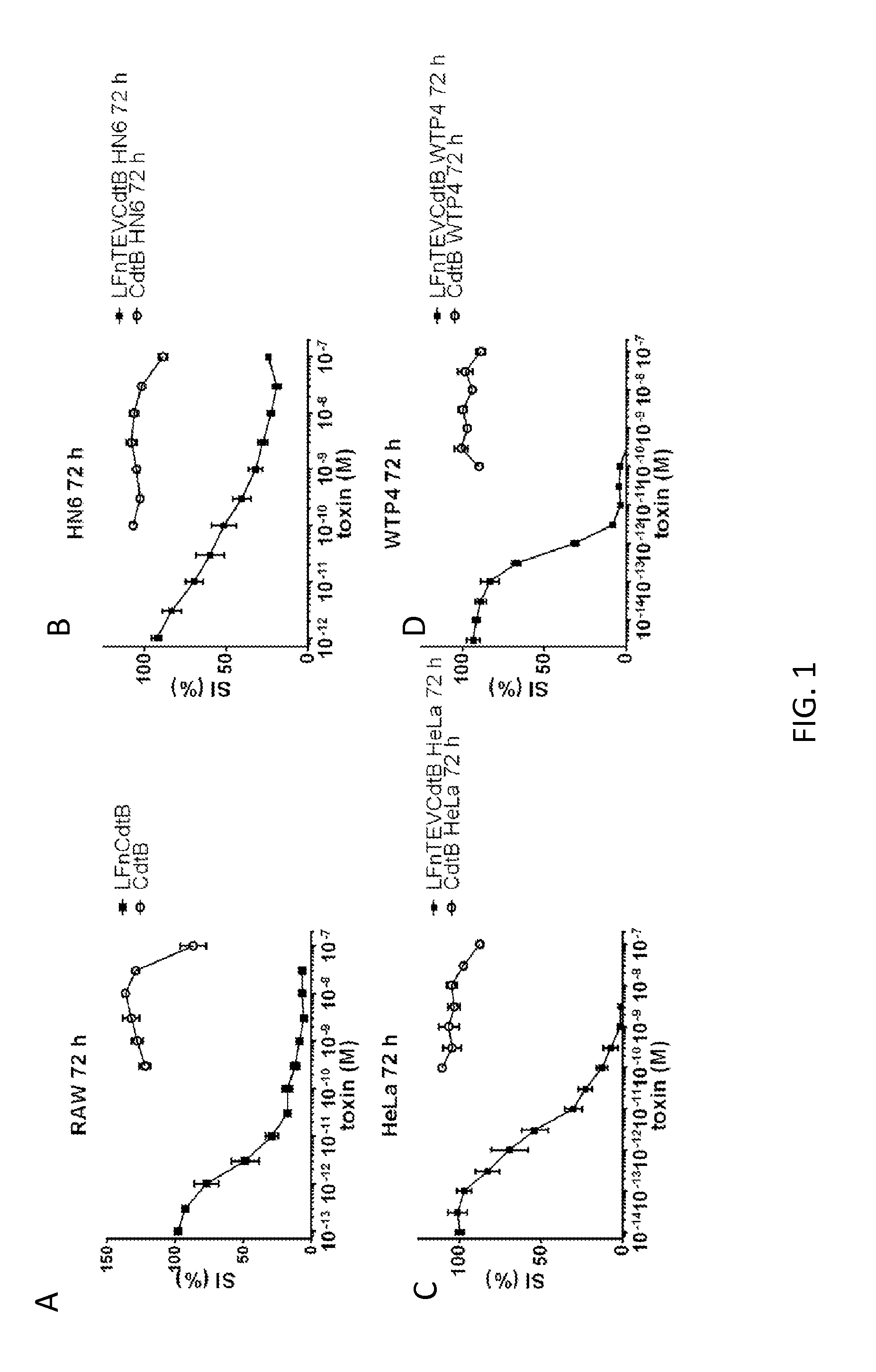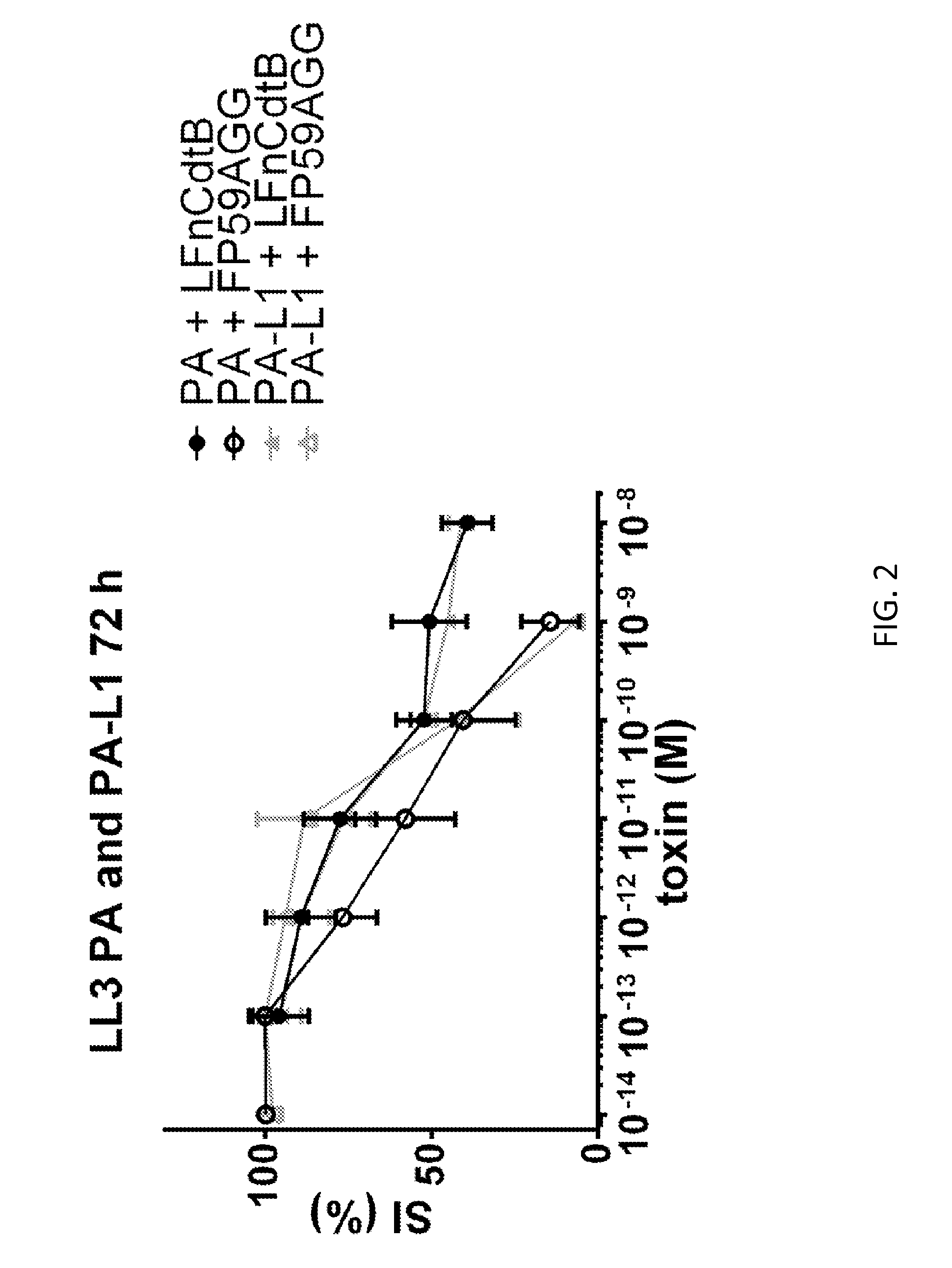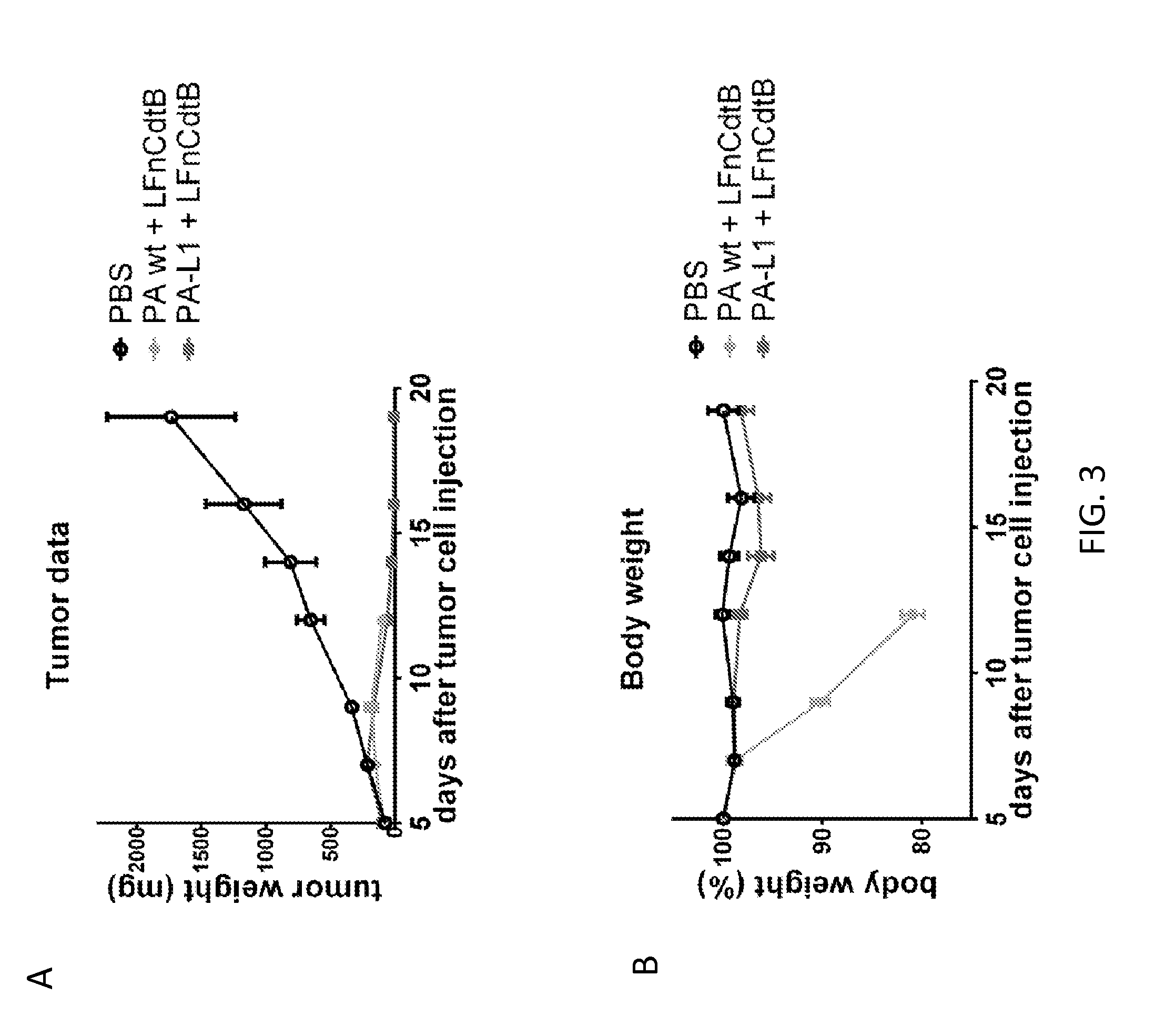Cytolethal distending toxin subunit b conjugated or fused to bacillus anthracis toxin lethal factor
a technology of cytolethal distending toxin and bacillus anthracis, which is applied in the direction of peptide/protein ingredients, enzymology, peptides, etc., can solve the problems of cdt and its portions, inhibiting the growth of cells, and lessening the cytotoxic effect, so as to treat or prevent the condition
- Summary
- Abstract
- Description
- Claims
- Application Information
AI Technical Summary
Benefits of technology
Problems solved by technology
Method used
Image
Examples
example 1
[0096]This example demonstrates a method of producing a protein comprising CdtB conjugated or fused to Bacillus anthracis toxin lethal factor LFn (LFnCdtB).
[0097]LFnCdtB (SEQ ID NO: 3) includes the N-terminal 255 residues of anthrax toxin lethal factor (SEQ ID NO: 2) (LFn) fused to the N-terminus of an 11-residue peptide linker (SEQ ID NO: 4), which is, in turn, fused to the N-terminus of the 261 residues of CdtB (SEQ ID NO: 1).
[0098]The cDNA CdtB from H. ducreyi was amplified by PCR to generate the suitable restriction sites MluI and XmaI for cloning CdtB into the expression plasmid FP59AGGpYS for B. anthracis expression. The following signal sequence (from B. anthracis protective antigen): MKKRKVLIPLMALSTILVSSTGNLEVIQ (SEQ ID NO: 5) (encoded by SEQ ID NO: 6) was generated.
[0099]LFnCdtB was expressed and purified generally as described in Park et al., Protein Expression and Purification, 18: 293-302 (2000). Expression was carried out in the plasmid-cured and non-infectious, proteas...
example 2
[0101]This example demonstrates the enzymatic activity of LFnCdtB.
[0102]The enzymatic activity of LFnCdtB was confirmed and compared to that of CdtB in a DNA cleavage assay (DNase Activity Assay). Plasmid DNA (1 μg) was incubated with 25 pmol of CdtB or LFnCdtB or 1 μL DNase I at 37° C. for 2 hours (h) in a total volume of 15 μL 25 mM HEPES, pH 7.2, 50 mM MgCl2. The samples were analyzed on a 0.7% agarose gel.
[0103]The results showed that the enzymatic activity of LFnCdtB was similar to that of CdtB.
example 3
[0104]This example demonstrates the cytotoxic activity of LFnCdtB.
[0105]Cell culture experiments were performed on HeLa cells (human cervical carcinoma cell line), WTP4 CHO K1 cells (Chinese hamster ovary cells), HN6 cells (human head and neck cancer cell line), RAW264.7 cells (murine leukemic monocyte / macrophages), LL3 cells (murine Lewis Lung carcinoma cells), B16 / BL6 (murine melanoma cells), and T241 (murine fibrosarcoma cells). Additional human cell lines of the NCI-60 panel used for experiments include: melanoma cells (C32, Malme-3M, SK-MEL-2, SK-MEL-24, SK-MEL-28), colon carcinoma cells (COLO 205, HCC2998, SW620), lung carcinoma (A549 and NCI-H226), renal carcinoma (A-498 and SC12C), and breast carcinoma (MDA-MB-231 and Hs 578T).
[0106]WTP4 CHO K1 cells were maintained in modified Eagle's medium alpha with GLUTAMAX-1 medium (Gibco, Life Technologies, Grand Island, N.Y.). All other cells were maintained in Dulbecco's modified Eagle's medium with GLUTAMAX-1 medium (Gibco, Life Te...
PUM
 Login to View More
Login to View More Abstract
Description
Claims
Application Information
 Login to View More
Login to View More - R&D
- Intellectual Property
- Life Sciences
- Materials
- Tech Scout
- Unparalleled Data Quality
- Higher Quality Content
- 60% Fewer Hallucinations
Browse by: Latest US Patents, China's latest patents, Technical Efficacy Thesaurus, Application Domain, Technology Topic, Popular Technical Reports.
© 2025 PatSnap. All rights reserved.Legal|Privacy policy|Modern Slavery Act Transparency Statement|Sitemap|About US| Contact US: help@patsnap.com



